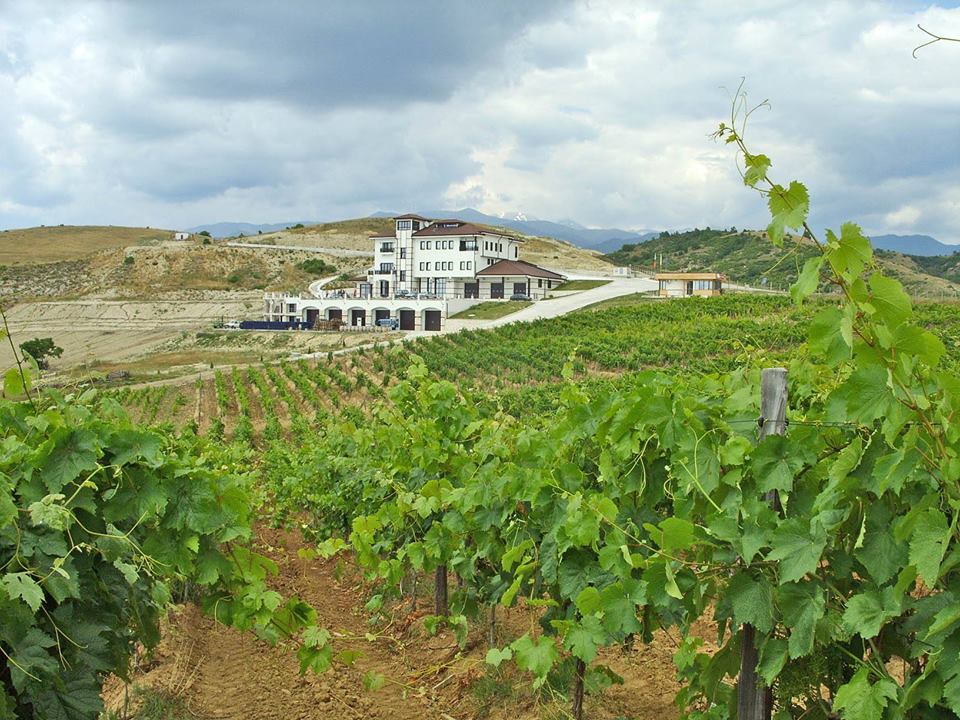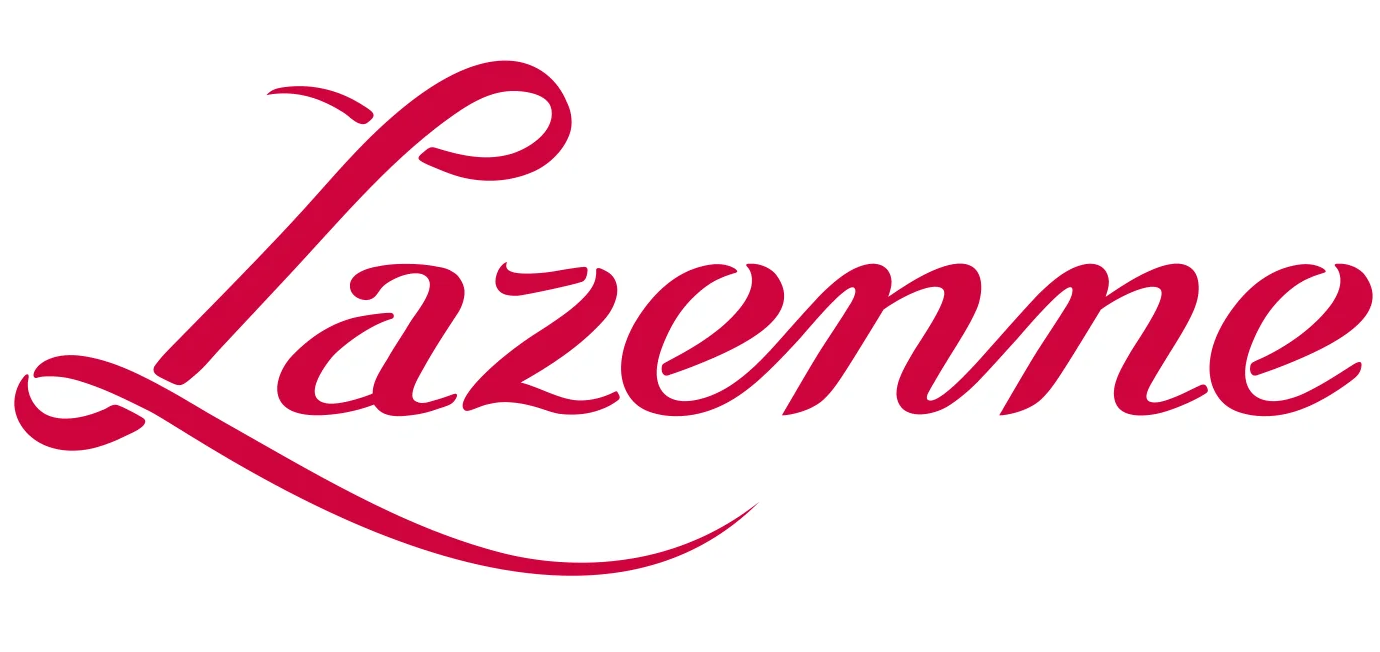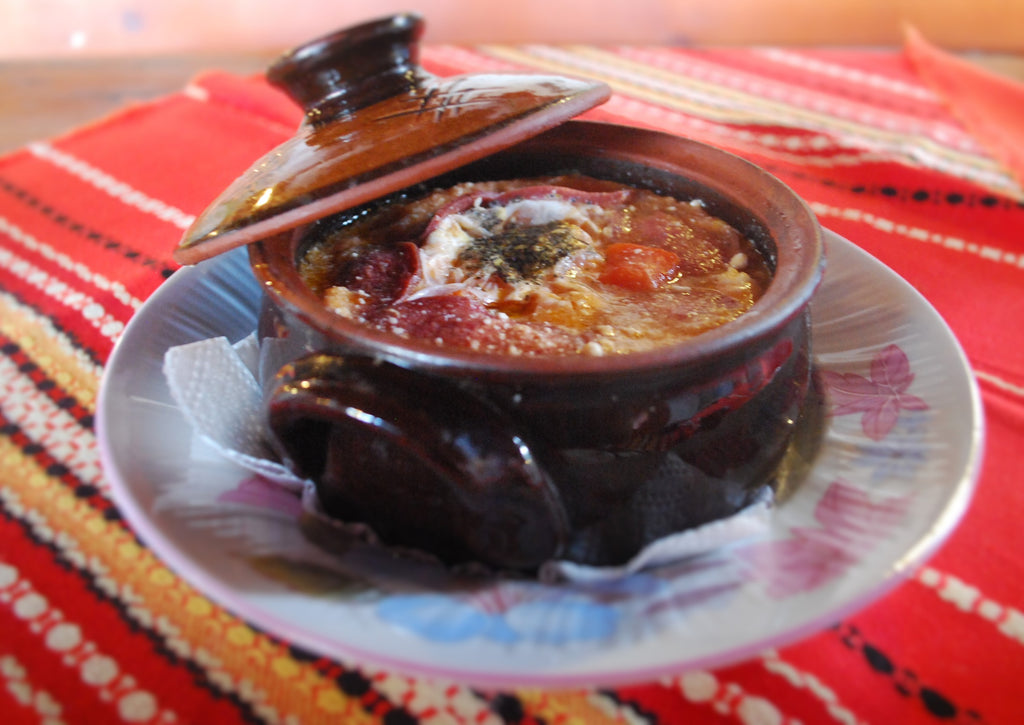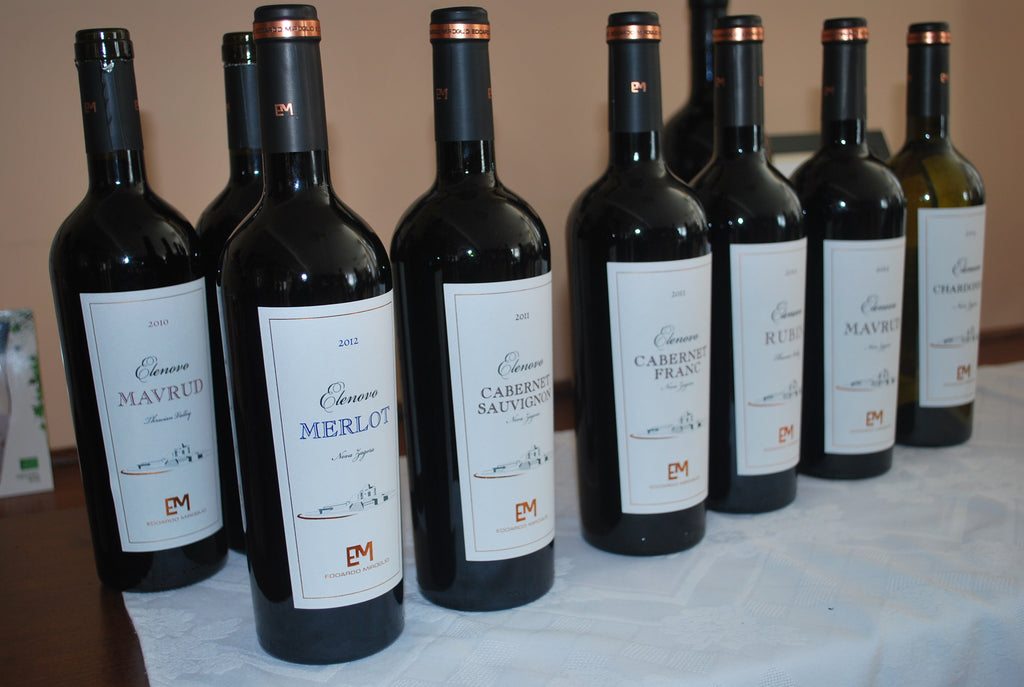Bulgaria: An Up-And-Coming Wine Region To Visit Next
By Zina Sorensen & Vasil Zlatev

Bulgaria. Dramatic mountain ranges, alluring beaches, historic towns, picturesque villages and a rich culture.
Probably known more for its sandy beaches and great value ski resorts, a little known fact about Bulgaria is that wine has been made on the territories of nowadays Bulgaria for over 5000 years, and was a tradition started by the ancient Thracian tribes that inhabited these lands.
Bulgaria might be more known for its beautiful scenery than its delicious wines but that may be changing. Recently, the 23rd Concours Mondial de Bruxelles was held in the ancient town of Plovdiv. In 2015, Plovdiv hosted the Digital Wine Communications Conference (DWCC) and Sofia is set to host the prestigious 40th World Congress of Vine and Wine in 2017. At the Concours Mondial de Bruxelles 2016, Bulgaria was not only the host, but also continued its reign as the country with the most awarded wines in Central & Eastern Europe, winning 109 medals in total. The future of Bulgarian wines is bright and the region is a rising destination for heritage, culture, food and wine discoveries.
Wine Regions

Bulgaria is divided into five wine regions, each with its own unique characteristics. The Northern Wine Region (The Danubian Plain) is a large region that covers almost all of the area between the Balkan Mountain Range (Stara Planina) and the Danube River in the north. Frequently, the northwest corner of the Danubian Plain is considered a sub-region and a thriving wine region on its own. The Eastern Wine Region (The Black Sea Coast) covers the entire coastline stretching from north to south (Bulgarian-Turkish border). Sometimes, a distinction is made between the Northern Black Sea Coast and the Southern Black Sea Coast breaking the over 300 km long coastline into two areas. The Sub-Balkan Wine Region (The Rose Valley) is a small but captivating region with ruins from the Thracian civilization, rose plantations that produce more than 80% of the world’s rose oil and mineral water springs that have served as mineral baths and mineral spa resorts throughout centuries. The Southern Wine Region (The Thracian Valley) is home to the most wineries in Bulgaria. The region is easily split into two or three sub-regions. It has long been believed that the western part of the Thracian Valley around the outskirts of the Rhodope Mountain is the birthplace of the ancient red grape variety – Mavrud. Mavrud produces a rich and deep red wine that is a national pride and a very promising varietal in terms of the global market. The South-Western Wine Region (Struma Valley) is comprised of wineries located in and around Melnik, Sandanski, Petrich, Harsovo, Damyanitsa and Blagoevgrad. The region is the proud home to the endemic variety Broad-Leaved Melnik. Bulgaria has two official Protected Geographical Indicators (PGI) for wine: The Thracian Lowlands and The Danubian Plain. There are 52 Protected Designation of Origins (PDO) registered for Bulgarian wine. These two EU quality schemes (PDO & PGI) guarantee, protect and promote where and how the wine was made.
Local Grape Varieties

Bulgaria has 44 registered native grape varieties. In addition, foreign varieties have found a good home in Bulgaria’s fertile soils and sunny climate. There are 22 local red grape varieties and 22 local white grape varieties. Not all of the local varieties are actively used in winemaking. Here are a few of the most popular and promising:
Red Bulgarian Grapes
- Mavrud
Mavrud is the reigning indigenous red variety of Bulgaria and the pride of the nation. Mavrud is an ancient grape first cultivated in the Southern Wine Region thousands of years ago. It has been hailed as the most promising wine to capture global markets due to its excellent taste properties. There are many local legends attached to the Mavrud grape that you will just have to visit Bulgaria to hear.
- Rubin
Rubin is a hybrid between Nebbiolo and Syrah, and was created in Bulgaria in 1944. It was more widely planted in the 1950s. Rubin wines have gained considerable popularity on the Bulgarian market. Some wineries produce blends of Mavrud and Rubin. These blends bring the best out of the two local grape varieties and are indeed an interesting experience for the palette of every wine enthusiast.
- Broad-Leaved Melnik
Shiroka Melnishka Loza [Broad Leaved Melnik] is an old Bulgarian grape variety that has been cultivated since ancient times in the region of Melnik in south-western Bulgaria. The wines from Shiroka Melnishka Loza were a highly sought after commodity for rich European families in the 19th century. An interesting fact is that wines from Shiroka Melnishka Loza were Winston Churchill’s favourite. The famous politician used to purchase 500 litres of wine from this variety each year.
White Bulgarian Grapes
- Dimyat
Dimyat is an old white grape variety native to Bulgaria. It is cultivated mainly along the Black Sea coast but also in some areas in eastern and southern Bulgaria. The grape produces pleasant dry white wines with discrete vanilla nuances. Dimyat is also used for the production of wine distillate, natural sparkling wines and liqueur wines.
- Red Misket
Red Misket [Misket Cherven] is an ancient Bulgarian grape variety that can barely be found anywhere else. Red Misket is present in each wine region in Bulgaria, but it is most widespread in the Rose Valley wine region. The name might be confusing but this pinkish grape does in fact produce excellent dry white wines. It is often blended to improve its acidity.
- Tamianka
The official name of Tamianka is Muscat Blanc à Petits Grains. It is an interesting grape producing a fresh and crispy white wine that pairs well with fish and even slightly spicy food. It is also delicious on its own. The grape is relatively difficult to work with and there are not many Bulgarian Tamianka wines out there. When you do get your hands on one of them, it is a real treat.
Where to Taste
Wineries
Tasting wine in the place it was made is a memorable experience. There are many wineries to choose from in Bulgaria. For a wine tour, pick one or two wine regions that you would like to explore. You can easily manage two wineries in one day. Maybe even three. Call the winery in advance to confirm their availability to meet you. Most wineries can conduct a tasting and tour in English led by an oenologist, wine tour guide or owner. Tastings are typically accompanied by bread, local appetizers and water. Tasting pours are usually quite generous. Don’t be surprised if you are not offered a spittoon as it is not typical to spit out your wine in Bulgaria.
Wine Bars
There is something to be said about the allure of an elegant wine bar or enoteca. Wine bars, enotecas and urban tasting rooms are great places to try a varied selection of wines, swap recommendations with a sommelier or unwind with a group of close friends over a few bottles of wine. They are ideal places to sample wines from different regions, to learn from educational tastings, to attend themed events, to indulge in wine and food paired dinners and to meet likeminded people. We have several favorite places to drink wine:
- Vinopolis
A new enoteca in Plovdiv with a focus on Bulgarian wine. It is a wine bar, library, tasting hall, wine tourist information centre and event venue all-in-one. Several wine tastings and wine-and-food pairings are held at Vinopolis every month.
8 Tsar Asen Str., Plovdiv
+359 88 755 2408
- Grape Central
A modern wine bar and restaurant with many interesting Bulgarian wines, delicious food and a great atmosphere. Wine tastings and Meet-the-Winemaker Dinners are regularly held at Grape Central. A great place to visit and sample the best wines that the Balkans have to offer. Great wine selection.
45 Samuil Str., Sofia
+359 88 982 0444
Where to Dine
Bulgarian cuisine is diverse, hearty, fresh and traditional. The cuisine is influenced by Turkish and Greek cuisine but also has many Slavic and Balkan elements and, of course, traditional Bulgarian recipes that have been passed down from generation to generation. It is highly recommended to find a local ‘mehana’ and sample some of the most popular traditional dishes such as shopska salad, hotchpoth, kavarma, kapama, kyufte and kebapche. Apart from the local restaurants, there are a number of wine restaurants with adventurous wine lists, great ambience and delicious food. Here are our favorite places to eat:
- Megdana
A traditional Bulgarian restaurant with an authentic atmosphere, local food and live music. There is a folklore programme on every night that includes a dance ensemble and traditional singing. Get ready to join the dancing after a few glasses of rakia (Bulgarian brandy)!
11 Odrin Str., Plovdiv
+359 88 596 8270
- Pod Lipite
One of the oldest restaurants in Sofia offering traditional Bulgarian dishes prepared with local products. The food is absolutely delicious. Coupled with a rustic and authentic atmosphere, you will feel transported to a different time at Pod Lipite, which translates to ‘Under the Linden Tree’.
1 Elin Pelin Str., Sofia
+359 2 866 5053
- Bendida
The charming Enotheka Bendida is a wine restaurant and a wine club. The restaurant is not open for business every day but can be booked for private dining and events. Every month, Bendida hosts a wine event such as a Winemaker’s Dinner. The wine restaurant and wine club is run by the Portevi family, who also own a winery just outside Plovdiv and a wine shop just above the restaurant. Typically, a set menu consists of 4-5 courses paired with wine.
15 Druzhba Str., Plovdiv
+359 88 955 5622
Where to Stay
Bulgaria has a varied selection of places to stay in and around wine country – from affordable, charming guesthouses in the rural areas to luxurious, spacious hotels in the large towns. It is highly recommended to try a spa hotel or a hotel located at a winery. Our favorites are:
- Crystal Palace Sofia
A boutique style hotel located close to the main pedestrian street of Sofia.
14 Shipka Str., Sofia
- Midalidare Hotel & SPA
A modern hotel located between the two wine cellars of Midalidare Estate with an extensive Spa centre.
6329 Mogilovo Village, Chirpan Municipality
- Landmark Creek Hotel Plovdiv
A new 4 star hotel in Plovdiv located by the rowing channel park and surrounded by greenery.
1 St. Valentine Str., Rowing Channel West, Plovdiv
Where to Buy
Bulgarian wine is available at all major hypermarkets. The stores with the largest and most varied selection are Leksi and Metro. It is also possible to find high-quality Bulgarian wines in specialty shops such as:
- CasaVino
A modern wine retail chain with shops in Sofia and Varna. An impressive collection of over 1400 different wines from all over the world are available in the stores.
Sofia and Varna
- Vino Orenda
A centrally loctaed wine retail shop with a focus on Bulgarian wines. This is the place to pick up a few extra bottles of Bulgarian wine before heading home.
50A Makedonia blvd, 1606 Sofia
When to Go
The best time to visit Bulgaria is in the Spring or the Fall. The weather is more agreeable, the country is less-crowded with tourists and the majority of wine festivals are during these seasons.
How to Get There
Sofia Airport is conveniently located not too far from thriving wine regions. There are regular international flights with direct routes to over 50 destinations.
Annual Wine Events
Major wine events take place annually such as the Wine and Gourmet Festival in May (Plovdiv), the Young Wine Parade in November (Plovdiv) and the official Bulgarian wine day known as St. Trifon’s Day celebrated annually on the 14th February (several locations).
Bulgaria Wine Tours was established in 2014 by Zina Sorensen and Vasil Zlatev. Driven by our love for Bulgarian wine, culture and traditions, we started this full-service tour operator specializing in wine tours. Our tours are a mix of experiences, combining outstanding wines, important cultural heritage sites, traditional cuisine and stunning landscapes. We have personally checked each step on the tours to guarantee that it turns into a memorable experience for you. Check out our tours here.
Read:




Deixar comentário
Este site é protegido por hCaptcha e a Política de privacidade e os Termos de serviço do hCaptcha se aplicam.